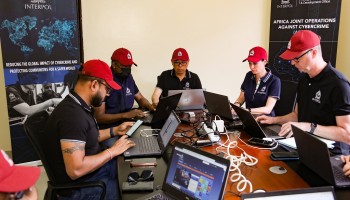Interpol announced Tuesday it had dismantled 1,037 servers and infrastructure linked to cybercrime, operating on 22,000 IP addresses, and arrested over 40 suspects as part of the international law enforcement effort Operation Synergia II.
Authorities also reported confiscating 43 electronic devices, including laptops, mobile phones, and hard drives, leading to the arrests of 41 suspects, with 65 additional individuals currently under investigation.
The operation, which ran from April 1 to August 31, 2024, involved collaboration between Interpol, private sector partners, and law enforcement agencies across 95 member countries. The initiative primarily targeted phishing, ransomware, and information-stealing malware, identifying roughly 30,000 suspicious IP addresses. Of these, 76 percent were taken down, and 59 servers were seized.
“We’ve not only dismantled malicious infrastructure but also prevented hundreds of thousands of potential victims from falling prey to cybercrime," said Neal Jetton, Interpol’s Director of the Cybercrime Directorate.
Many of the servers were located in Hong Kong and Macau, while authorities identified numerous individuals with ties to cybercrime in Mongolia and Madagascar. In Estonia, police seized more than 80GB of server data, which is being analyzed in cooperation with Interpol for connections to phishing and banking malware.
Authorities added that generative AI is increasingly used to enhance phishing tactics that often lead to ransomware attacks—a trend that saw a 70 percent rise last year.






